Mind Changed: Leaving the Right-Wing Media Bubble
On one hand, right-wing internet is massively funded and good at exploiting people's worst instincts. On the other hand, people just might be better than that.
Kate Shepherd is a math teacher and songwriter who has just moved from Phoenix to Los Angeles, where she hopes to pursue her musical ambitions. A proficient student, Kate almost didn’t graduate high school; she moved out of her mother’s house the day she turned eighteen amid struggles with her self-image, mental well-being, and feelings of isolation while navigating her sexuality. She worked two jobs while finishing school. All the while, Kate was diagnosed with numerous mental health disorders including depression, anxiety, and bipolar disorder.
Earlier on, Kate wasn’t very political. Her grandparents were Fox News-watching Republicans, but seldom did family or friends discuss politics in any substantive manner. As she transitioned to study math at Northern Arizona University, Kate’s mental health struggles came to a head. “That was a time where it was really at its worst, and I was struggling for a sense of belonging and community. I had friends, but my self-esteem was so low. I just felt like I wasn’t part of anything,” Kate tells me.
Kate came across a recommended YouTube video in 2016 arguing why to vote for Donald Trump. Despite not being extremely plugged in to the election, Kate felt incredulous at the idea of people voting for Trump. So, she clicked on the video.
It piqued her interest; she thought it presented unfamiliar arguments. From there, things snowballed. “I just kept clicking on more recommended videos. And that brought me right down into that Ben Shapiro, Steven Crowder world, and I was there for years,” she says. Kate doesn’t remember the specific arguments that lured her in, but she pinpoints why the right-wing landscape was able to ensnare her in the first place. “These guys are not about actual policy. They’re very good at obfuscating what the actual political implications are and how it will affect the lives of people. It's all a thought experiment. It's all really feelings-based, which is ironic, given their whole shtick of facts over feelings,” she says.
Kate describes the fusion these commentators would construct to bring people in, of both a welcoming harbor and exclusive fellowship. “Their whole thing is ‘the mainstream media won't tell you this, but we're telling you the truth. You have to listen to us independent guys, because we're not lying to you,’” she says. “They're very good at wrangling people in just based on that feeling of, ‘you belong here with us because we're telling you the truth.’”
Kate began to attend conferences like Turning Point USA’s Young Women’s Leadership Summit. “It reinforced what I was thinking and doing, like ‘look at all these other beautiful young women who think the way that I do and enjoy the personalities that I do,’” Kate says. This feeling of community stemmed more from entertainment than anything else. “A lot of the conversations I had with other people were just about the personalities that we like to see speak, what we liked about their speech. It's more like going to a concert rather than about actual politics,” she concludes.
Kate attending Turning Point USA’s Young Women's Leadership Summit in Dallas, Texas, in 2018.
Kate recalls a speech from author and online personality Jordan Peterson that brought her to tears. At the time, she didn’t have a therapist or any prescribed medication, or really anyone to lean on. Jordan Peterson – whose body of work is largely comprised of academically-veneered right-wing platitudes marketed as self-help and fool-proof psychology – spoke to Kate’s anxieties and loneliness. “I was such a huge fan of his. Some of the things he would talk about made me feel like I was being seen. And – now I'm getting emotional. It's hard now to watch back some of those speeches, because I'm like, ‘Oh my God, was I not even listening?’”
Kate also held a very particular connection with Steven Crowder, right-wing commentator and face of the Change My Mind meme (for which the original photo depicts Crowder’s spirit for discourse, though he’s notorious for focusing his supposed debate chops on college students more than anyone else). “In 2018, I was living in Texas. And I was actually dating one of Steven Crowder's producers. We were living together. My ex – I don't think he's a bad guy, he doesn't work for him anymore,” Kate says. “But I was such a huge fan of Steven Crowder, I wanted to be on the show. I really looked up to these people. So, every day, he'd come home and we’d talk about Steven Crowder and his show,” Kate says.
It’s difficult to imagine someone rejecting, or even being exposed to an alternative to, the right-wing community after being this intimately connected to it. And yet. “One day I was listening to Joe Rogan. And Kyle Kulinski was on there, and I had never heard of him,” Kate says. “I thought, ‘oh, this guy's a leftist. Wow, he's pretty well spoken, those are some arguments I have never heard, and that's some history I didn't know.’ And I liked him. So I started listening to some clips from his show here and there.”
Soon, her relationship with the producer ended. Her mental health was at its worst; she was hospitalized for suicide attempts. “I was on a bunch of mood stabilizers and antidepressants that just were obviously not working for me. So I went off of them cold turkey, and was in bed for two weeks straight. I was so ill, and just really not knowing what to do with my life. I was unemployed. I had no sense of direction,” Kate says.
Kate moved back to Arizona. Her father and a family friend pointed her to a school district in need of teachers. She hadn’t had prior experience teaching, but after completing a certification program, she was able to apply and was promptly hired. “Teaching is a big part of what helped shift me because, man, there's nothing like working with kids,” she says. “I worked in special education, and just getting to know such a diverse group of people, and seeing their struggles and their strengths, and getting to know their families and helping them grow is – I would say, that might be the biggest thing that helped shift my worldview, directly interacting with people who are different from me, and seeing what their needs are.”
Kate making math videos for her students amid COVID-19’s spread in 2020.
Alongside this development, Kate’s media diet was changing; the happenstance Kyle Kulinski introduction was just the beginning. “I've been teaching the last three years, and over that time, I just gradually started listening to more Kyle Kulinski. He was definitely my intro,” Kate says. “And then he led me to Majority Report, and that was huge for me – I thought Michael Brooks was so funny and insightful.”
Kate recalls a pivotal moment when a video entitled “Perhaps Ben Shapiro Shouldn't Be Taken Seriously By Anyone About Anything,” a video from popular YouTube channel Some More News, was recommended to her. “I was still a big Ben Shapiro fan. I've done meet-and-greets with Ben Shapiro, there are pictures that exist of me with Ben Shapiro, I've been to his live shows, I have T-shirts,” Kate says. “And I saw this video in the recommended bar, and I was afraid to click on it, because it's an hour long, and I thought, ‘Well, how much does this guy have to say about Ben? What is it that I don't know?’ And I didn't click on it for several weeks, because I could feel that resistance to having my mind changed. But eventually I did.”
Some More News host Cody Johnston explains to me that he produced the video to not only invalidate Shapiros’s reputation as a “reasonable” sharp debater, but to also push beyond simply refuting things Shapiro says. “I think it’s important to show that they’re incorrect, that in a lot of cases he knows they’re incorrect, and why he says them,” Johnston tells me. “Where does it come from? What’s the ultimate goal? What is his actual worldview and what drives him to be this dishonest in order to get closer to that worldview? Is it religion? Is it money? Is it foolishness? Is it spite? It’s gotta be something, because it’s certainly not honest.”
This more critical analysis resonated with Kate. “I sat there, I watched the whole hour and 10 minutes, and I thought, ‘Oh, my God, what have I been doing? Why have I been worshipping this guy?’” she says.
As her politics shifted, so too did Kate’s self-regard. This “political awakening” aligned with developments including a better relationship with practices like therapy, gaining a better sense of her identity – among other revelations, Kate has recently begun coming out as lesbian – and reclaiming what she’s passionate about. “I care about people I don't know – outside of just my friends and family. None of us got to choose our circumstances. None of us got to choose what family we're born into, how much wealth we inherited, what zip code we went to school in. So why should that determine the rest of our lives?” she says. Working with special education students, particularly in a poorer socio-economic school district, greatly influenced her. “Several of the kids in our school were homeless during COVID, hungry, found to be victims of sex trafficking. These kids didn't choose this, they don't deserve this. Nobody deserves to be hungry or homeless. And that just seems so obvious. These guys are so good at obscuring that, and making it about like, ‘oh, personal choices, individual freedoms.’ But that's not how it works.”
Kate’s ardent empathy was apparent in someone else too. Kate posted about her evolution online. Below her posts, she and another user were reflecting on the guilt they both shared for their past viewpoints and how they treated people. They held reservations and nervousness about sharing their experiences. Below this exchange, someone named Ariel Pacheco chimed in to suggest that “reservations are normal, but for me the point of this discourse is to grow and learn and have other people see and read your experiences and growth. So ya'll are doing way more good then ya give yourselves credit for.”
Ariel Pacheco is a working actor from New York City who has been involved in an array of projects, including, among other things, HBO’s High Maintenance. He was born and raised in Queens. The oldest of four brothers, Ariel bartends when he isn’t performing. Ariel had his first foray into the arts in the second grade, playing as a lion in the school play. But he never really had a chance to get involved with performing more formally until college, as his schools didn’t offer a theater program.
Ariel’s first foray into performing was when he was a second grader, acting as a lion who ate too many strawberries and got a stomach ache.
Ariel didn’t pay much attention to politics when he was younger. He passively identified as a Democrat; he credits his early views to his father, a voracious reader and news-watcher, who always re-iterated the importance of things like voting and staying informed. Both Ariel’s parents immigrated from the Dominican Republic. “They both have the story: they came in, they worked for three dollars an hour, and built a life for themselves. They did it with three kids at the time,” Ariel tells me.
Ariel’s relationship with them, particularly his father, was strong and enduring, but not without strain. “It was a really positive relationship, but it often felt a little distant, because he worked so much. We had a good time but they were always working, so my dad was always teaching me something – every day it was almost like a lesson about something,” Ariel says. “But they both did whatever they could to make sure that we were happy and comfortable. And he's a big influence on why I am the way I am. He was a big proponent of doing the right thing – whether or not anybody was watching – and he was a big advocate for working hard.”
Ariel’s political and identity formation came in large part through this relationship with his father. Ariel feels frustrated reflecting on his dad’s span in the U.S., and what all of that toil and time even resulted in. “I always think about how much he gave to this country. He lives in an apartment that he can only afford because of Section 8 housing, and he deserves so much more than that. He deserves so much more than working for 35 years, six, seven days a week sometimes, with two week vacations a year.”
Watching his father labor and follow platitudes like “do the right thing and work hard,” only to not fulfill the meritocratic tale Americans are constantly bombarded with pushed Ariel further left. “He wasn't doing anything wrong – he was doing everything these supposed American patriots talk about, and he's not really seeing real benefits or real love and real acceleration in his life because of it.” Ariel says. “But he doesn't complain, he just says ‘yeah I just want my kids to be happy.’ Very simple man, in that sense. He was a huge part of my life and political identity, only because I got to see how it was affecting him, and my mom too.”
Ariel’s evolving politics coincide with his own personal evolutions. “In high school, I was pretty ignorant,” Ariel confesses. “I was never really homophobic towards people, but I used homophobic language, and kind of inadvertently ascribed to that by saying it and being around those people who said it and didn’t care.” Ariel even goes as far to suggest he was perhaps “incel-ish.” “I always beat myself up and got sad for myself that somebody else wouldn’t like me. It was like ‘I’m a nice guy. I love people, I’m this, I’m that. Why won’t people, girls like me?”
Ariel’s candid self-awareness comes especially clear when he acknowledges how subject he was, as anyone could be, to forces around him. “As I learned more about how people fall into these holes, I consider myself lucky that my ignorance wasn’t weaponized, taken advantage of, that somebody wasn’t able to radicalize me in some way.”
Despite some past attitudes he doesn’t approve of, Ariel explains empathy always played a large role in his life. He felt this empathy was sharpened much more after becoming involved in the arts at college. “I got to meet so many different kinds of people,” he starts. This culture, dedicated towards sharing art and creation alongside a diverse array of people, influenced what began to matter most in the world to Ariel. “I simply empathize with the fact that people want to have better lives,” he continues. “I want my friends to have decent day-to-day lives and not feel uncomfortable and not feel attacked, because I’ve also been personally attacked many times – but I didn't care as much about that – I just empathize more.”
Ariel (right), pictured alongside two cast mates and friends, during a performance of Dog Sees God at the City College of New York.
Because of how important empathy had been to Ariel – even before college – he felt right-wing content couldn’t ever truly grip him. “People would share Ben Shapiro and Crowder shit, and it would make me angry before I even got a chance to fall into it and go, ‘yeah those are just the facts, yeah, fuck your feelings.’ I always felt kind of alone on the internet because a lot of people share shit like that,” Ariel says. “I felt like social empathy discourse was being lost, because people were just like ‘you're being dumb because you actually have feelings about shit.’ I've always been a sensitive person. That's why it turned me off, because I always felt like it was an attack on people being empathetic.”
Kate and Ariel embody two different stories of political and personal evolutions, and both are remarkably candid and sincere in their illustrations of them. They exhibit how subject to external forces we humans can be. This notion can feel dangerous, perhaps in considering how misinformation – whether it be about voting, pandemic response, and so on – can proliferate online. It could also be seen as liberating, or at least a cause for exploration. Because this doesn’t simply mean people are hopelessly vulnerable to forces around them – it reminds us that people are dynamic, that we are living beings who have the capacity to change and evolve. And in at least entertaining this notion, we can more readily interrogate how right-wing forces triumph online, and how other systems can be proactive in providing people a different ecosystem that relies less on outrage and more, perhaps, on embracing people’s good natures. Moreover, it beckons us to view politics as a mechanism to meaningfully change people’s minds and channel their spirits, rather than simply to convince people to maybe vote your way the next election.
So how does right-wing media work? What itch does it scratch for people – or what insatiable rash does it create for them? And what should we be thinking about in order to bring people towards something different, something better?
Right-wing media tends to operate on outrage and emotion – accelerating the same elements that media algorithms already exploit. Users respond to emotion. They click, and if the resultant content validates or invigorates one’s strongly-held emotions or beliefs, they’ll click again. Algorithms know and use this. Right-wing media in particular takes advantage. “Reactionary content is good content; it's easy to get people outraged. So you latch on to the culture wars, whatever that culture war may be,” says Matt Binder, journalist and commentator for popular talk show Majority Report. “Unlike talk radio, now you have the algorithms pushing you. And the outrage machine plays into that, because the algorithms love engagement, and nothing gets more engagement than outrage.”
Generic outrage isn’t the only mechanism right-wing media employs. Often, these creators cater to people’s anxieties but also inculcate new ones, insisting that they (the viewer) know something that everyone else doesn’t – casting them as a social outcast, or perhaps culturally-suppressed. In doing so, these creators offer people some novel community, a beacon of truth and belonging, for outcasts like themselves.
This offer can serve as a bridge between innocuously searching for answers online, to slipping directly into the ecosystem. “You can stumble upon these things by looking for stuff you might not think is totally related. The pandemic is a really great example of this. It’s completely feasible to imagine somebody getting on their computer typing in, something like ‘what's the truth about the Corona vaccine?’ and that SEO happens to pull up weird right-wing content,” says Jared Holt, host of technology & politics podcast SH!TPOST and Research Fellow at the Atlantic Council’s Digital Forensic Research Lab. “They view it, the site says ‘oh wow they like it. They read this article for three minutes. That must have been a really engaging piece of content, let's see if we could show them something like that again, and see how they react to it then.’”
This invitation is essentially transactional. It offers an online home, a place of security and acceptance, if one is willing to wholly embrace the Truth that Nobody Else Is Talking About. “There’s the quest for information, a truth that other people don't know. That's catnip for so many people, and it just leads them to believe once you find one hidden truth that you believe in, you’ll find more,” says Mike Rains. Rains is co-host of Adventures in HellwQrld – a podcast on QAnon – and co-moderator of the subreddit QAnonCasualties, a massive online community providing support and resources for people whose friends or loved ones have embraced QAnon. He continues, “You're also now in the social aspect of it. You're looking for a group of people that will believe what you believe. Now you're getting validation, you're getting acceptance. It's just this massive way to get into a community that's constantly telling you that you're right, and that you're smart, and that you know better than everybody else, that you're part of the secret in-group.”
On-the-fencers may confront a “sunk cost.” The amount of time, energy, and emotion expended once deep enough inside a bubble that constantly gins up emotions and encourages suspicion towards everyone else is overwhelming. “These groups have that way of retaining you because, ‘hey dude, you're already down the rabbit hole. No one's going to love you outside us. We're your only family now bud.’ So you're stuck,” Rains says. “And that's a powerful inhibiting factor from letting people leave, is that they don't think there's a place for them.”
The community right-wing media fosters goes beyond the impression of exclusive acceptance, or the cultural and aesthetic elements the bubble invokes. It also relates to the array of personalities that all coalesce to create an interconnected network, a public-facing apparatus with every component buttressing each other. “The right is a well-oiled machine, to the point – whether it's organically, or because there's some money exchanging hands through some sort-of advertisement or content sharing deals, whatever – the end result is the right-wing media sphere always promotes others in the sphere,” Binder says.
This “giant revolving door,” as Holt calls it, is not necessarily an establishment-drafted masterplan. “It’s something I wish people were more cognizant of, which is how it's informally organized,” Holt says. “You know, there's no board meetings happening, there's just a Twitter DM with like 40 accounts in it.”
Distinctions among the right-wing can be perceived as more marginal; the sphere generally involves people all advocating for a broader project of less government and maintaining cultural and social tradition, while disagreements may simply come more from aesthetic and presentational tactics. “There's almost like an insurgent mindset, where all these influencers and hosts all see themselves as playing for some sort-of team that exists outside of the mainstream or the ‘establishment,’ Holt says. Conversely, the left faces debates of strategy, tactics, and baseline policy objectives. Different factions debate whose ideology can genuinely build a bigger tent in the face of a power structure that favors right-wing politics electorally, and materially, given entrenched, status quo politics is exactly what Republicans want. “So unlike what happens to nice little liberals online who fight with each other over the best course of action, there's a lot more hesitation in these right-wing online ecosystems to undermine one another,” Holt continues. He asserts there are naturally rifts between right-wing commentators, but they’re often less consequential. “Most of that is usually personally-driven rather than politically-driven. It has to do with someone feeling wronged by another person, and less about anything ideological.”
So while the right-wing media ecosystem operates more like a conglomerate, there doesn’t appear to be a distinct left-wing counterpart. “Left-wing media is more disparate. It's more diffuse. There really isn't a massive collective of voices out there that if you've heard one, you've heard them all,” says Rains. Money plays a huge part in this. Bloated right-wing donors fund a range of these right-wing personalities and outlets, thereby granting the ecosystem a massive advantage in creating and circulating content, only accelerating the algorithm’s already reactionary-tilt.
Conversely, left-wing media relies on less concentrated sources of funding such as grants, Patreons, and individual donors. These do not provide the same advantage – let alone enough to maintain a rich ecosystem that could easily connect outlets into a broader network and springboard new entities to sustenance, if not outright success, within that network. “I think you’d be hard-pressed to find a billionaire willing to fund any left-wing media, because the projects are in opposition to each other,” Cody Johnston says. “No, you’d fund media that more or less says ‘everything is fine, the system works perfectly, racism doesn’t exist, don’t rock the boat, you too can be a billionaire and one day you will be.’”
The right-wing media ecosystem is parallel to conservatism broadly. Reactionary, hollow talking points are completely coherent with these political projects, precisely because the right-wing political project is reactionary, hollow governance. As Thomas Schaller wrote in The Prospect:
Because conservatives and Republicans are ideologically predisposed to blocking changes or accretions in governmental policy, the victory of nothing is often a victory for the GOP. Delivering zero policy results isn't a failure of Republican rule but quite often the objective. As Hacker and Pierson astutely observe, because Republicans repeatedly emphasize that government is the problem and not the solution to most problems, the GOP tends to be rewarded when government fails. After all, they predicted exactly that!
And so, purveyors of these ideologies can readily hurl blame and scapegoat any potential societal failing, because that’s the point: it’s not society that’s broken, it’s other people. Kate recalls how right-wing content simply provided her with self-justification, more than anything else. “It made me feel better about myself, because it's like ‘oh, the left, they're such crybabies, they're such snowflakes, you know, they're just not working hard enough,’” she says. “And I could feel righteous and feel like ‘well I'm not playing the victim. I have all these problems, but at least I'm not crying about it,’ (Even though I was!).”
The right-wing ecosystem sustains itself on outrage and blame. But Binder argues that people can only feel bitter and angry for so long, particularly if their lives truly don’t improve. “That works to get them into this, but as time goes on, they see shit’s not getting better, even though they are with people who believe this stuff,” Binder says. “The idea that you can reach those people is not far gone. When it comes down to it, these far-right ideologies aren't offering anything better. They're just offering somebody to blame.”
Evidently, there are numerous structural and entrenched barriers from actually reaching people. Some of it, though, is about who is taken to be the alternative to right-wing reactionary media. Binder argues that the right intentionally makes large corporate news outlets out to be “leftist media,” in order to conceal “actual leftist viewpoints that debunk what the right-wing is selling them.”
Kate affirms Binder’s thesis. “I didn't know there was a left-wing like this, because those guys are so good at conflating neo-liberals with the left,” she says. “They do a good job at painting this picture that these people you see on CNN or whatever, that's the left. And it's just not true. There's this whole left-wing online space, independent journalism and political commentary that I just didn't even know about.”
The stakes are reaching a zenith. Holt explains how extremist communities have evolved since the January 6th capital attack, and how they have moved to alternative platforms beyond places like Twitter – instead to places like Gab and Telegram without any remotely meaningful opposition or fact-check, any mechanism that might possibly cause someone to pause. He says, “I've been watching groups that were already pretty radical in their ideologies go to these platforms, then just completely fly off the rails, because they're just getting reinforced and no one's pushing back against anything.”
Right-wing media continues to evolve and ensnare people, often people who had no necessity to be there at all. Cody Johnston believes there is a robust alternative landscape, albeit naturally with more variance in perspectives than the right-wing. Despite these differences, he is optimistic in what this ecosystem can offer. “It’s evolved into not just a project of refutation but one of possibility and manifestation,” he says. “It’s not enough to point out that these people are wrong, but you have to offer an alternative. A better world is possible and you (everyone, actually!) can be a part of it.” Could this alternative ecosystem provide means to not exploit people’s worst instincts, but instead channel and empower their good natures?
Ariel wonders whether humans collectively even have this nature. With a somber tone, he tells me, “Sometimes you got to be okay with letting the human race show themselves who they are. You fight for all the progress you can and you’ve got to be willing to lose, you've got to be willing to see this is who we've been all along.”
But Ariel himself, and Kate too, show us that the struggle isn’t just about figuring out who humans have been.
Indeed, it’s a question of who they can be – which is to say, anything.
Hey there, before you go –
I hope you appreciated this article. If you did:
Share it with people you think oughta read it. Email, Twitter, Facebook, Instagram — wherever (find me on Twitter here!).
Subscribe for free. If you found this worthwhile, you’ll want to stick around.
Leave a comment below! This whole newsletter is concerned with people, and how we navigate and confront power & politics. How we are told a better world isn’t possible – yet how we can and do pursue one anyways. This project is enhanced with your thoughts, reflections, questions all coming together. I’d really love to see all your reactions turn into some good, solid conversation here.
Be well, take care, and love. A better world is possible.



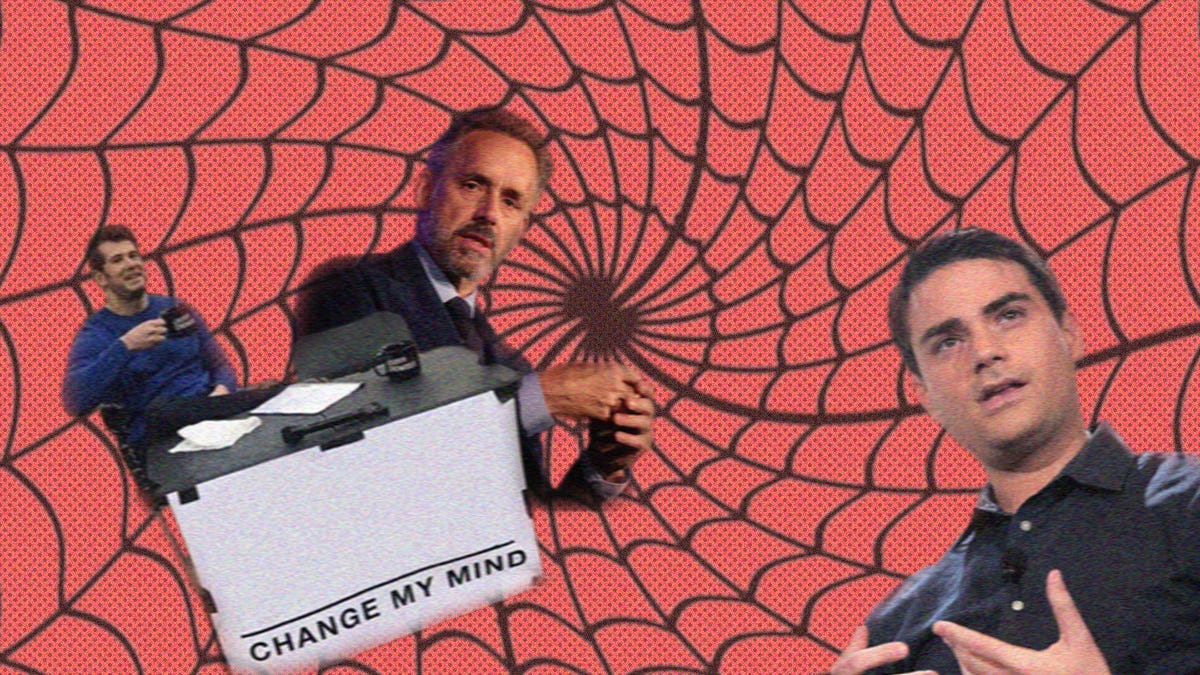
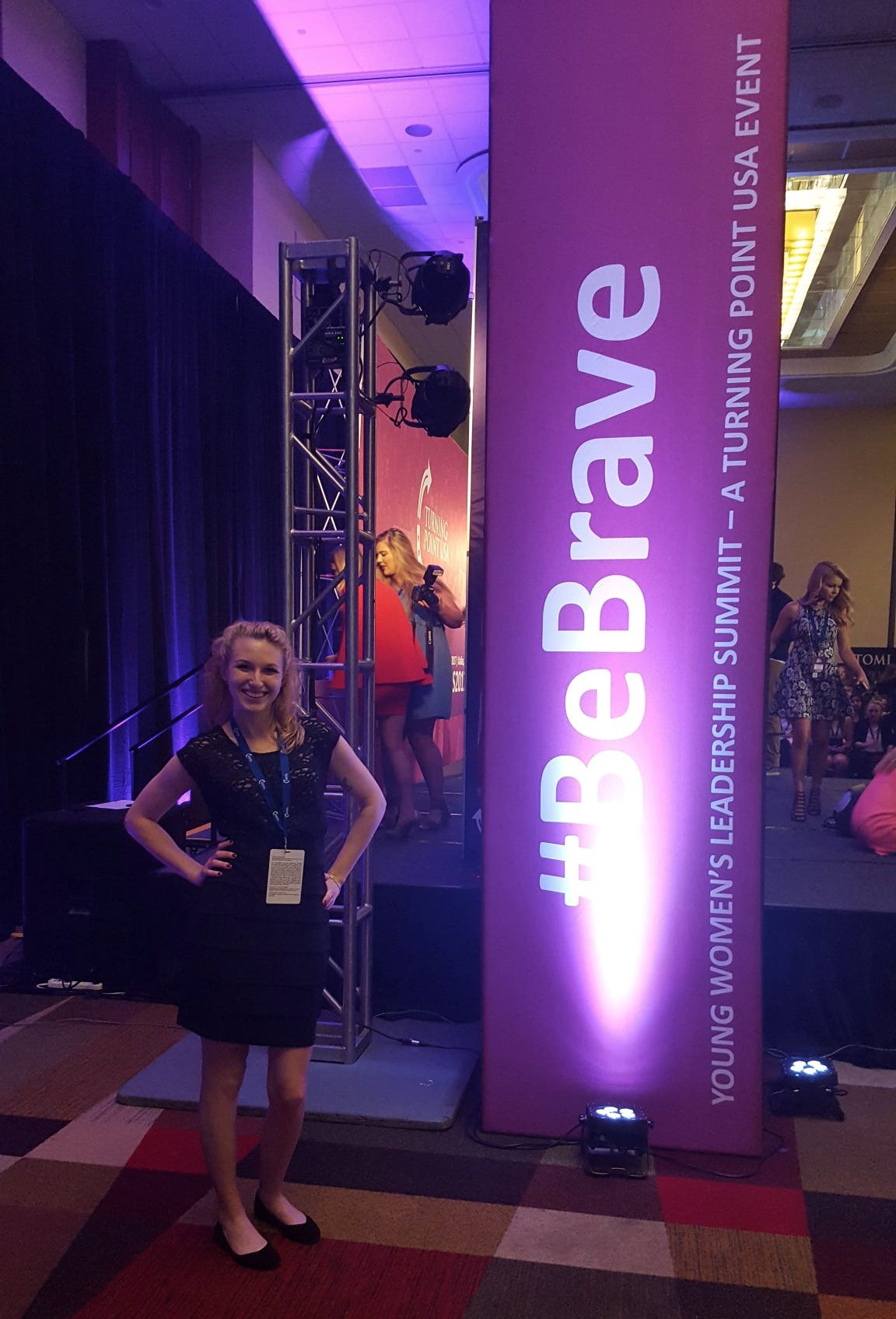
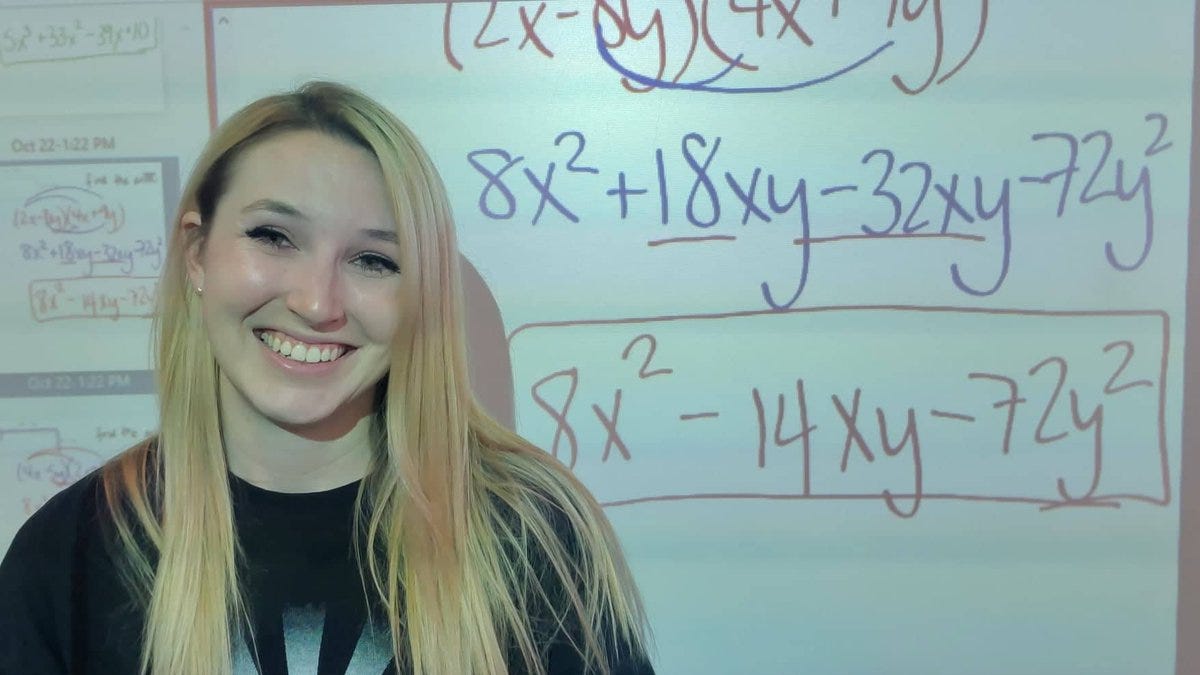
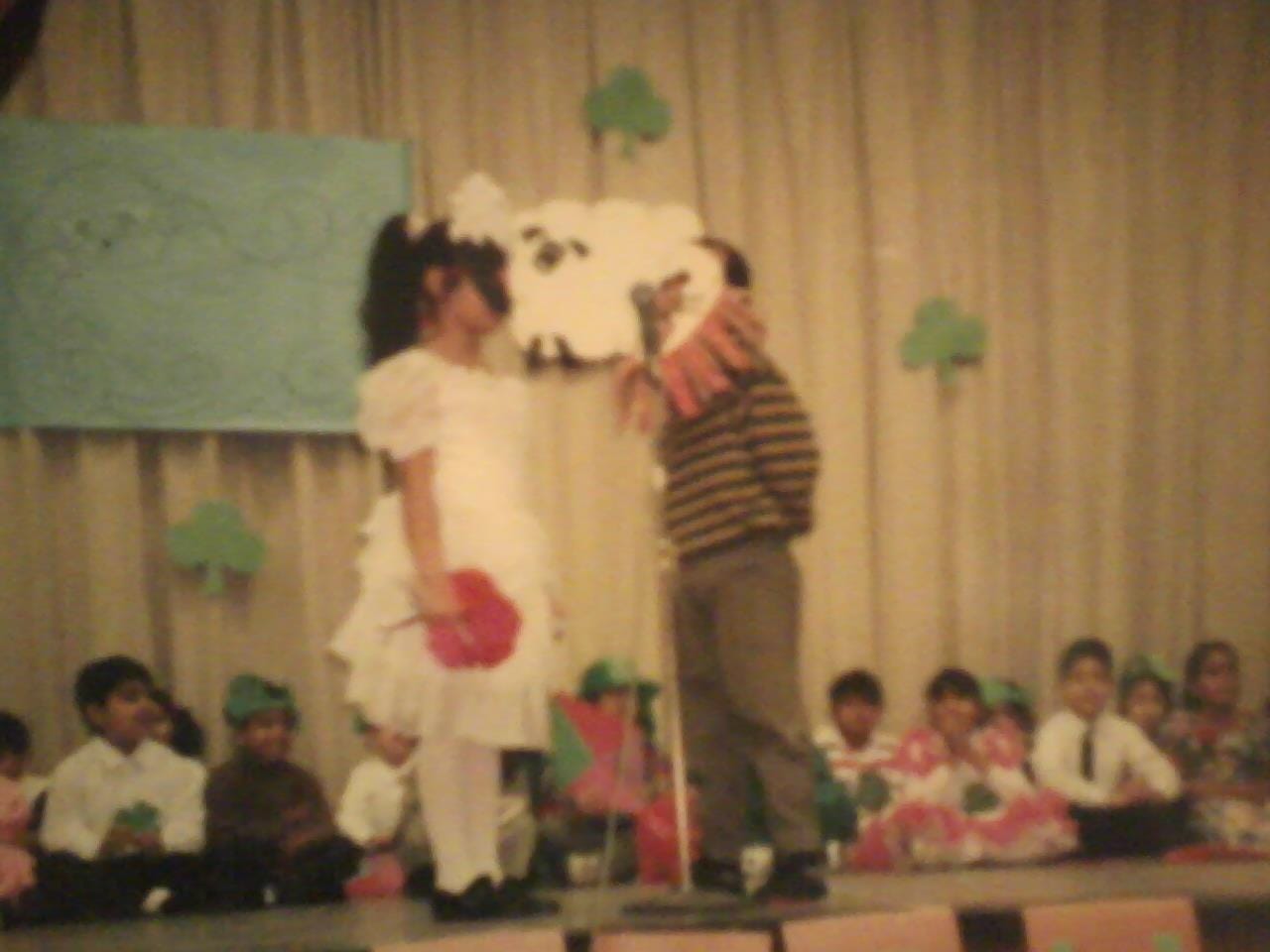
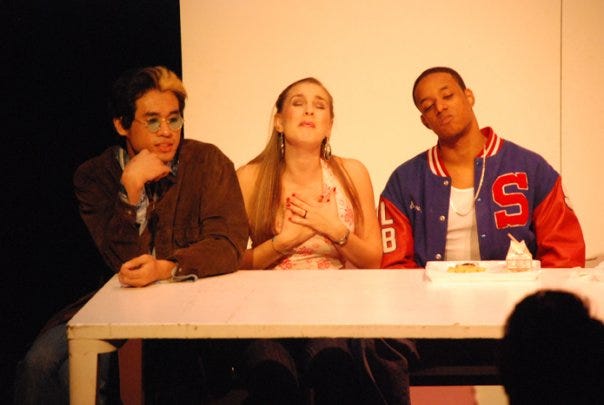
Wow a teacher that is a Democrat. Radical.